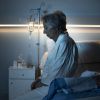ICU Management & Practice, ICU Volume 15 - Issue 2 - 2015
A study published in JAMA has shown that drinking a non-toxic strain of Clostridium difficile bacteria could help reduce the incidence of recurrent infection caused by the toxic strains of the bacteria.
C. difficile is the most common cause of healthcare-associated infection in U.S. hospitals, and recurrence occurs in 25 to 30 percent of patients. Toxic strains of C. difficile bacteria cause diarrhoea, abdominal cramps and, in some cases, severe inflammation of the colon. The infection commonly affects people during or after a hospital stay, particularly those who have had a long course of antibiotics or have a weakened immune system.
"The antibiotics don't completely get rid of the C. diff bacteria, and if the patient hasn't developed an immune response against the toxin the bacteria produces, they'll get sick again," explained lead author Dale Gerding, MD, professor of medicine at Loyola University Chicago Stritch School of Medicine.
In this trial, after patients were successfully treated with an antibiotic, the researchers gave them a non-toxic strain of C. difficile, theorising that the good bug would crowd out what remained of its toxic cousin. 173 patients (18 years or older) were randomly assigned to four groups: three that received different doses of non-toxic C.difficile, and one that was given a placebo. The good C. difficile, Dr. Gerding noted, is completely natural. Treatment involved drinking a colourless, odourless liquid once a day, for one week.
Of 125 patients who received the treatment, only 11 percent had a recurrent infection within six weeks. Notably, a subgroup that was given a relatively higher dose of the good bug fared even better: only two of 43 patients (5 percent) suffered another infection. Patients on the therapy had headaches more often than the placebo group, but there was no evidence of serious risks, the research team noted.
After treatment, the good C. difficile bacteria "don't stay around forever," Dr. Gerding said, adding that the therapy may set the stage for patients' normal balance of gut bacteria to flourish again.
In an interview with ICU Management Dr. Gerding explained that non-antibiotic treatment was the focus as the antibiotics used to treat the C. difficile infection leave the patients susceptible for reccurrence because they disrupt the normal bacteria in the gut. A mechanism for treating it was needed that doesn’t affect the other bacteria in the gut so the study substituted the non-toxigenic strain for the toxigenic strain, getting the gut colonised with the non-toxigenic strain and then preventing patients from having the reccurrence.
Dr. Gerding confirmed that a phase three trial is planned to look at the optimal dose and duration of the therapy. Looking to the future, as it is easy to identify who is most at risk of C. diff infection, treatment would simply be an adjunct treatment to prevent patients getting a recurrence and ultimately for primary prevention.References:
Gerding Dn, Meyer T, Lee C et al. (2015) Administration of spores of nontoxigenic clostridium difficile strain M3 for prevention of recurrent C difficile infection: a randomized clinical trial. JAMA, 313(17): 1719-27.


















